Reviewed by: Mushtaq Ul Haq Ahmad Sikander
In every conflict innocents do become cannon fodder in tussle between the contending parties. The cannon fodder is necessary to keep the pot of the conflict boiling. In most cases these innocents who get consumed in the raging fire of the conflict are themselves unaware of the politics, intricacies and different dimensions of the conflict. To prove that those consumed as cannon fodder in the conflict are innocents is too difficult, as the lines between truth and lies become indistinguishable in any conflict situation. But to prove innocence of those who were associated in any manner actively with the conflict becomes not only difficult but impossible. The present book under review details the case study of one such victim who was involved with Kashmir conflict and is now paying its horrific price by being incarcerated for life by the Indian state. This book is a compilation of various judgments regarding his case, press statements and some chapters about his thought too are included in the book.
Dr Muhammad Qasim was a militant commander; he is an ideologue, author, Islamic scholar and spiritualist. In his Foreword to the compilation, eminent advocate of Kashmir Syed Tassaduqe Hussain writes, “Dr Muhammad Qasim an outstanding political ideologue and writer of contemporary Kashmir is suffering incarceration for holding political beliefs that are unacceptable to the ruling establishment and he has been convicted under an infamous Indian anti-terrorist legislation, in a trail that manifestly was wanting in judicial fairness as overzealous prosecutors employed dubious investigatory methods for collecting materials of evidential value on the basis of which Dr Qasim was ultimately tried and convicted for life”. He further states, “I still hold the view that the trail of Dr Muhammad Qasim was not fair, that is why I consider it my ethical obligation to lobby for his freedom. His trail was not fair from Indian Judicial Standards, as first he was placed under detention under infamous Public Safety Law and while under detention, he was subjected to intense interrogation coupled with severe torture”. Then Hussain aptly states, “The trail of Dr Qasim should serve as a wakeup call for those international organizations who are striving for ‘Human Rights’ and ‘Rule of Law’ so that we are able to establish a world order that is just, equitable and rational”.
Dr Qasim was tortured and imprisoned on the charges of being involved in the killing of noted human rights activist and trade union leader H.N Wanchoo in 1992. Later on he was tried under the Terrorist and Disruptive Activities Act (TADA), but the flaws in the case that included not following the rules while obtaining the confessional statements, as pointed out by Sain Dass, Presiding Officer of the designated court under TADA, Jammu that led to his acquittal. But later on Supreme Court reversed the judgment of TADA court and sentenced him to life imprisonment in 2003 and also stated that his confessional statement would be held against him. In a chapter titled, Truth About My ‘Confession’, Dr Qasim says, “From Feburary 5 to April 5, I was subjected to shameless torture which no words can express in the notorious Papa Two interrogation centre Srinagar. Even after more than twenty years my body stands witness to the torture I received there” (P-41-42).
Dr Qasim rightly observes about the hostility of the judiciary when he writes, “It may not be rule but mostly we have seen that, if lower court of the judiciary pronounces sentence to accused, higher especially the apex court condones or at least lessens and reduces it. But in our case everything is topsy turvy. The Jammu TADA court acquits us but the apex court differs to an extent that not only an ordinary punishment but life imprisonment was pronounced. Our simple question to all justice loving people is that, How can we get Justice now?” (P-45).
Then the review board recommended on 03/06/2008 to the state government to release Dr Qasim prematurely, but government rejected the recommendation. “Whereas Rule 54.1 of the J&K Manual unambiguously lays down that a prisoner convicted of a terrorism related crime is not eligible for premature release” (P-51).
Then Justice Mansoor Mir’s decision about considering the case of Dr Qasim in terms of jail manual after he completed fourteen years in jail was set aside by the government and then by the Double bench of high court too. After review board recommendation was rejected twenty years meant life sentence, but in case of Dr Qasim life sentence has been translated to mean the whole life, despite the fact that Delhi government released two life convicts booked under TADA. The book also contains a list of life convicts who were released between 1975-2006 by the J&K government, but since 1990-2006 none has been released except one non Muslim and his crime for which he was booked isn’t disclosed too.
The second part of the book deals with the public reaction to the High Court decision of describing Life Imprisonment as one where the convict will not be released till death overtakes him. Besides containing the press coverage and statements regarding Dr Qasim’s case this part contains a chapter on Dr Qasim’s Mission and Vision penned down by Advocate Abdul Mateen that sums up his views about various issues ranging from Resistance in Kashmir, to religion, Kashmir economy to social reformation and his views about women too are discussed. Syed Tassaduque Hussain also has a chapter about Indian democracy.
Overall the book is a wake up call for all who are concerned about the democratic and individual values and don’t want Indian state to retrograde towards fascism, where even judiciary is used to muzzle the voices of dissent instead of protecting them. Dr Qasim’s case is a testimony and manifestation of the fact that judiciary is now being used as a tool to suppress the voices of resistance against the Indian State. The book is a chilling read depicting the struggle of a person who refuses to compromise on his ideas and is paying its price. But at the same time it is a reminder to those who still believe in lofty idealism of judiciary being independent from the executive. If Kashmiris become hopeless and pessimistic with the judiciary too, whose manifestation Dr Qasim’s case brings vividly then the alienation, resentment and resistance against the Indian state is bound to increase rather than narrowing down.
M.H.A. Sikander is Writer-Activist based in Srinagar, Kashmir
and can be reached at sikandarmushtaq@gmail.com


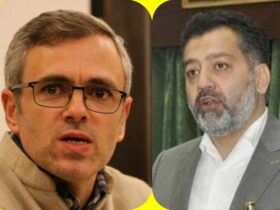
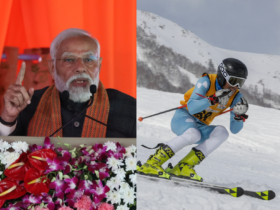




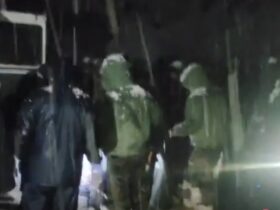
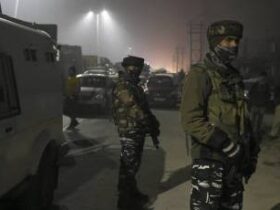
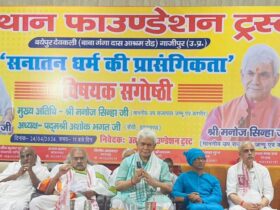
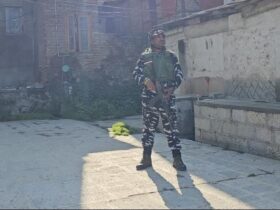
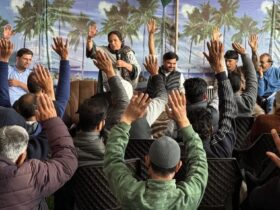
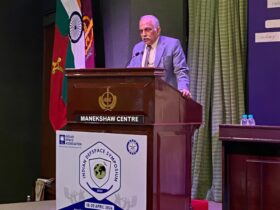
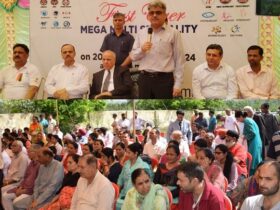
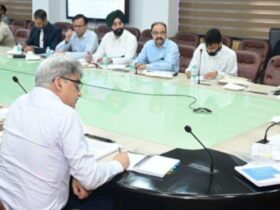

Leave a Reply